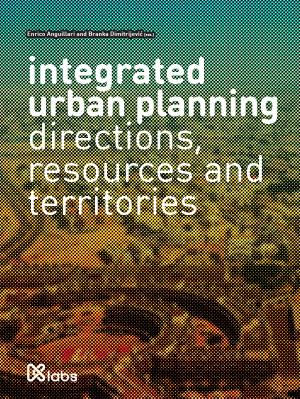Hosted by
integrated urban planning: directions, resources and territories
Synopsis
The purpose of this book is to present ongoing research from the universities involved in the project Creating the Network of Knowledge Labs for Sustainable and Resilient Environments (KLABS). The papers published in this book show that the recent and current research in those institutions focuses on the directions of development of IUP, the processes that support sustainable use of natural resources and their application in the Western Balkan and some other European countries. Each essay aims to provide an overview of key aspects of the research topic.
Over the first two decades of the 21st century, some significant changes have been taking place in the natural environment (climate change, loss of biodiversity), societies (increased migrations, population growth and aging, increasing gap between poor and rich), and economy (globalisation, financial crash, digital revolution and increasing automatisation), new directions are emerging for sustainable human development with the aim to overcome those problems. Some novel research directions are reviewed by Maura Benagiamo whose chapter provides an overview of the critiques of the resilience paradigm, the recurrent concept of de-growth, as well as of the political ecology approaches towards the potential resolutions related to the problems of implementing IUP. When a significant and not yet fully functional political restructuring takes place, as in the case of Republic of Srpska within Bosnia and Herzegovina, a certain situation arises: the barriers to implementing IUP and the directions for their removal by improving the IUP methodology, the related professional education, and the training, as well as strengthening of the institutional and socioeconomic capacities, are analysed by Brankica Milojevic. Following an outline of the concept of a new urban governance model required for IUP and the application of IUP as an instrument for creating sustainable public policies on urban development, the chapter by Marija Maruna, Danijela Milovanovic Rodic, and Ratka Colic provides information on the implementation of the IUP principles in the teaching of master students at the University of Belgrade.
The key issues in the use of natural resources in order to plan efficient and productive cities are explored by investigating the relationship between the concepts of resource efficiency and resilience in the chapter by Antonio Girardi. One of the aspects of resource efficiency, that of waste reduction, reuse, and recycling in Serbia, is analysed in the chapter by Marina NenkoviÇ-RizniÇ and demonstrated by presenting innovative approaches to waste management in the municipality of New Belgrade. As natural resources and the built environment made of those resources need to be protected from natural disasters such as flooding, two chapters by Žana TopaloviÇ and Äurica MarkoviÇ provide an overview of integrated flood management approaches and flood risk management procedures, policies, and practice.
The final group of chapters focuses on how territories are affected by economic, political, and social pressures and what governance instruments should be improved to address them. The negative impacts on cities of neo-liberal economy through market-driven global investments are investigated by Dan Narita who proposes ecologically driven urban development approaches that increase the resilience of natural and built environments. The pressure of informal city growth and how to resolve this challenge through responsive master planning are key issues explored in the chapter by Biserka Mitrovic, Jelena Maric, and Tamara Vukovic. Participatory approaches instead of state-led land use planning are proposed as a way forward for IUP of urban-rural communities in the chapter by Martin Broz, who discusses how they can support a balanced agricultural production and strengthen relationships between urban and rural areas.
The above essays provide evidence of the research on some of the key problems that must be solved when applying IUP. The need for improving governance systems and instruments that will enable the application of IUP principles to emerge as a cross-sectional theme. The researchers’ engagement in real-life case studies demonstrates that their proposals for improvements in policies, practice, and professional education are founded on valuable insights. We believe that the presented research outputs will be an important source of knowledge for the students at various new MSc courses that focus on sustainable and resilient built environments in Western Balkan countries, as well as for policymakers, urban planners, and other researchers in this field.

